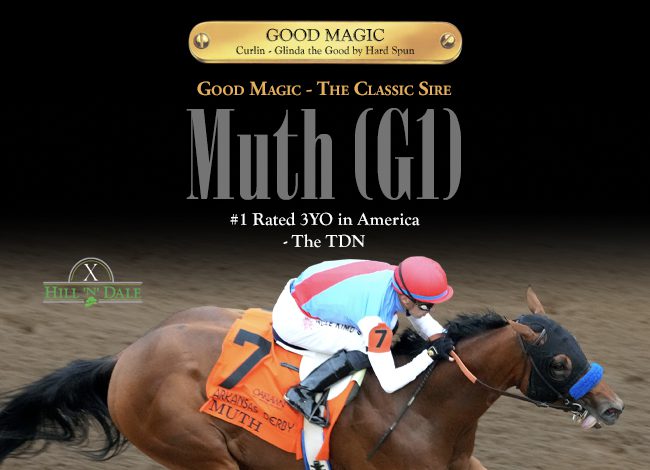By Joe Bianca
Last week, the NTRA announced that a decade-long effort to modernize tax regulations for horseplayers was set to become law. Its CEO Alex Waldrop recounted Tuesday in the TDN the lobbying efforts, stalled bills and fighting through bureaucracy that brought the industry to this unmitigated victory. The crucial turning point occurred after the NTRA, acting on suggestions from prominent horseplayers as well as its key lobbyist on the Hill, decided to stop trying to go through the morass of Congress and instead petition the Treasury Department and Internal Revenue Service directly to make the change.
That proved to be what pushed the effort across the finish line, thanks in large part to two public comment periods, one in early 2015 and one at the end of 2016, where thousands of horseplayers wrote in and explained why the current tax law was unfair, ridiculously out of date and a drain on them as well as the industry at large. Treasury's Office of Tax Policy and the IRS Office of Chief Counsel responded, saying the input was “very helpful in understanding these issues.”
The main problem, if you haven't heard, was that the IRS was determining the threshold amount of winnings for mandatory tax reporting and withholding based upon a near 50-year-old model, in which it considered only the base amount of a wager, rather than the overall cost of a mutuel ticket. These triggers–$600 for reporting and $5,000 for withholding when the winning ticket paid 300-1 or better–made sense and aligned more closely with the tax implications of other types of gambling winnings when the most exotic bet horseplayers could make was a $2 Daily Double.
But as exotic wagering branched out through the decades to include Superfectas, Pick 4's, 5's and 6's while minimum base wager amounts decreased, situations were created where players could trigger tax reporting and withholding for tickets they lost money on. For example, if I wanted to take a big swing at a Pick 5 one day and played a $.50 base ticket with 1,400 combinations for a total cost of $700, and the ticket hit but only paid $600, that ticket would have been reported to the IRS as a $599.50 profit instead of a $100 loss. Similarly, if someone played a $2 Pick 6 ticket that had 3,000 combinations and cost $6,000 but paid $5,000, they would only take home $3,750 because of the automatic 25% withholding, keeping $1,250 out of circulation on a single bet, indeed one that lost money.
With the new rules, the total amount of the wager will be considered, so that same $700 ticket would have to pay $210,700 or higher to trigger reporting and withholding thresholds. The change also simplifies tax returns for just about every horseplayer and minimizes the possibility that they make a mistake in reporting their winners and get popped for it later on.
“This is fair,” one of the most visible horseplayers' advocates, New York Racing Association handicapper and television host Andy Serling said. “It's not like somebody is being done some favor. This is something that makes sense. It's sort of shocking that it would take this long when you look at it logically, because it's fixing something that was wrong. You have to give real credit to the NTRA for a lot of hard work for doing something that's a great benefit to the industry for both racetracks and horseplayers.”
I was one of those horseplayers who submitted comments, and the case I made was about what this would mean to my everyday life, and the personal inequity I suffered because of the outdated regulations. While the IRS allows you to claim all of your gambling losses to negate tax liability on much of the winnings, the old rules still cost me substantial amounts of money every year.
Like most of my generation, I have a significant amount of student loan debt. For some reason that defies logic, the government's student loan providers consider amount of gross income rather than net income when it comes to income-based repayment plans and, more pertinently, whether or not you can claim the payments you make on student loan interest. So, every year that I've filed taxes since I started playing horses seriously, I have had to forfeit thousands of dollars in tax write-offs because my gross income suggested that I was making six figures a year while my net income was much lower. That could be the difference between being able to put a down payment on a car, or afford a security deposit for a new apartment, or investing that money back into the sport I love.
“The two most important cogs in the industry are owners and horseplayers,” Serling said. “Rightfully so, horseplayers sometimes feel neglected. This is something that's a long time coming and a positive for horseplayers in a game where they're the engine, but rarely seem to feel as though their cries are being heard.”
The old tax rules were a potential blow to cultivating a new era of horseplayers as well. I have done my part over the years to try to sell playing the horses to friends of my age group who gamble, mainly outlining how horse betting gives you a chance to make big scores off of small investments and do it in a shorter amount of time than any other game allows you to. But I've gotten sideways looks when I explained to those same friends the archaic tax rules that withheld 25% of my winnings or considered me a six-figure earner because of a regulation from the 1970s.
These are the kind of anachronisms we can't afford when attempting the uphill climb of trying to pitch this game to a younger, increasingly sophisticated generation of gambler.
It is not easy to be a horseplayer. Tracks raise takeout frequently without considering input from their customers, stewards rulings often seem capricious and vary wildly from circuit to circuit and just in a general sense, it's hard to make money betting on four-legged animals to do what you expect them to on a certain day. It becomes even harder if you're a middle-class horseplayer who isn't getting much of your losses subsidized by the giant rebates “whales” get. It becomes even harder than that when you're up against computer wagering groups whose algorithms, unlike average players, have access to real-time odds down to the millisecond before the latches spring, an immeasurable advantage the likes of which are disallowed in the stock market.
There are hurdles to jump left and right to have success betting on this game, and anyone who does it regularly knows how crushing and hopeless it can often feel.
Because of a tenacious effort by the NTRA and the eloquence of thousands of horseplayers, being a profitable bettor, for the first time in my life, became exponentially easier last week. The economic impact will be gigantic in a sport sorely needing a meaningful handle boost. But the human impact for the day-to-day player trying to scratch out a profit in a punishing game will be even greater. And all of us owe a debt of gratitude to those that beat this drum for the past decade to create one of the most overwhelmingly positive developments in the history of horse racing.
As Serling put it, “It's all too rare in both horse racing and life that a total good was done. This makes sense all around and is good for everybody. It's such a feel-good moment for racing, and it took a lot of hard work from a lot of people to get it done. It really has to be appreciated.”
Not a subscriber? Click here to sign up for the daily PDF or alerts.






